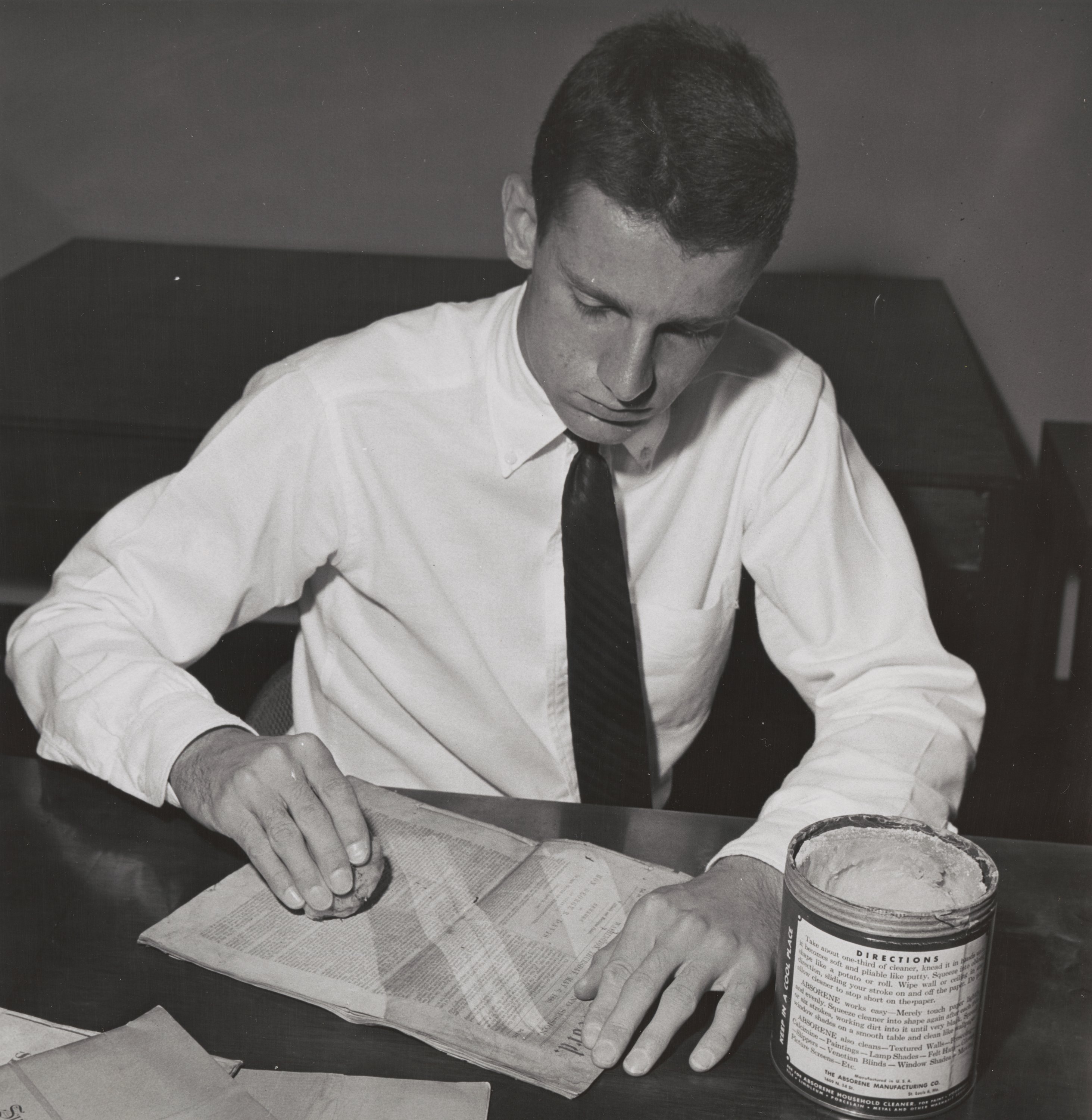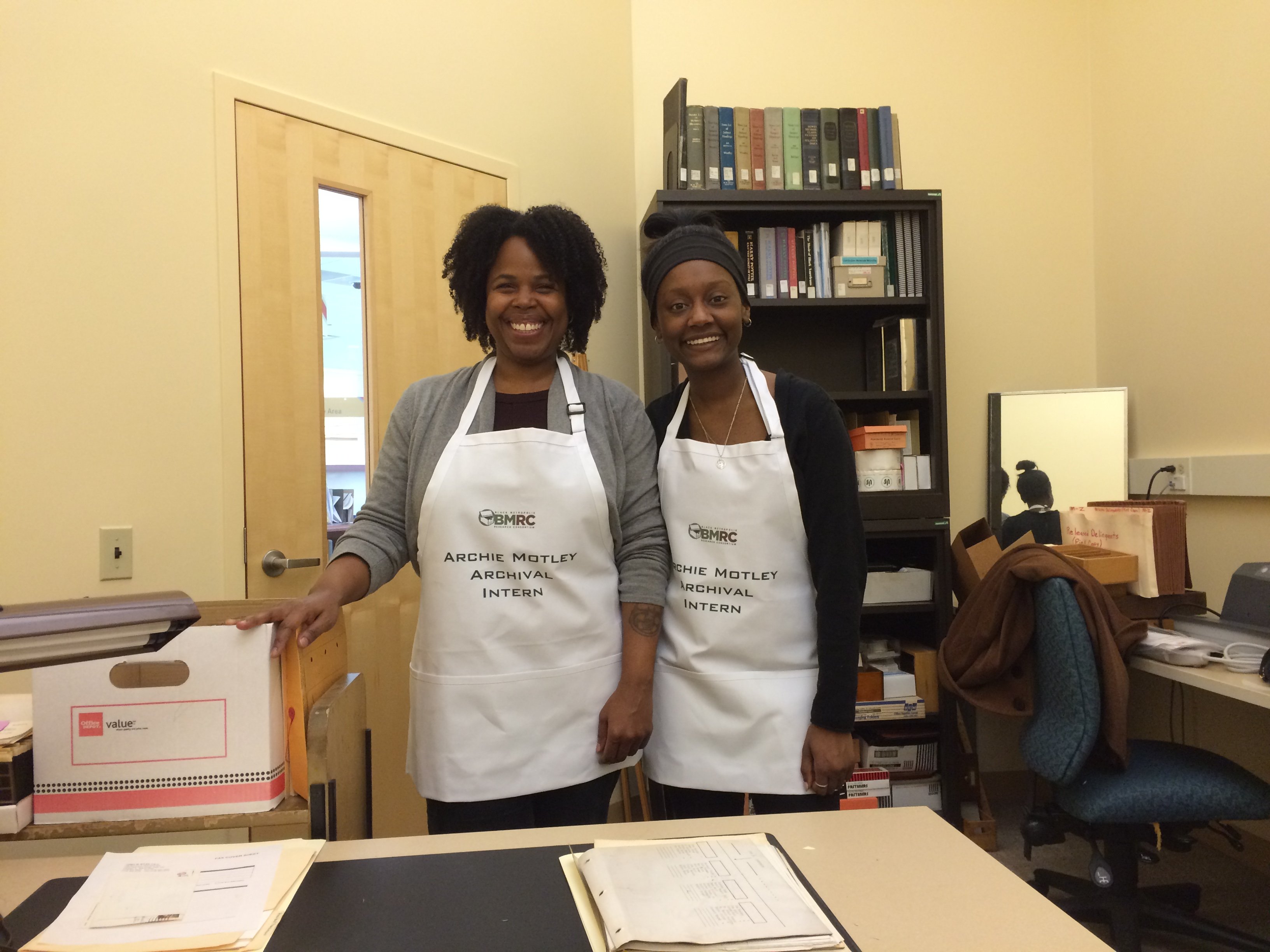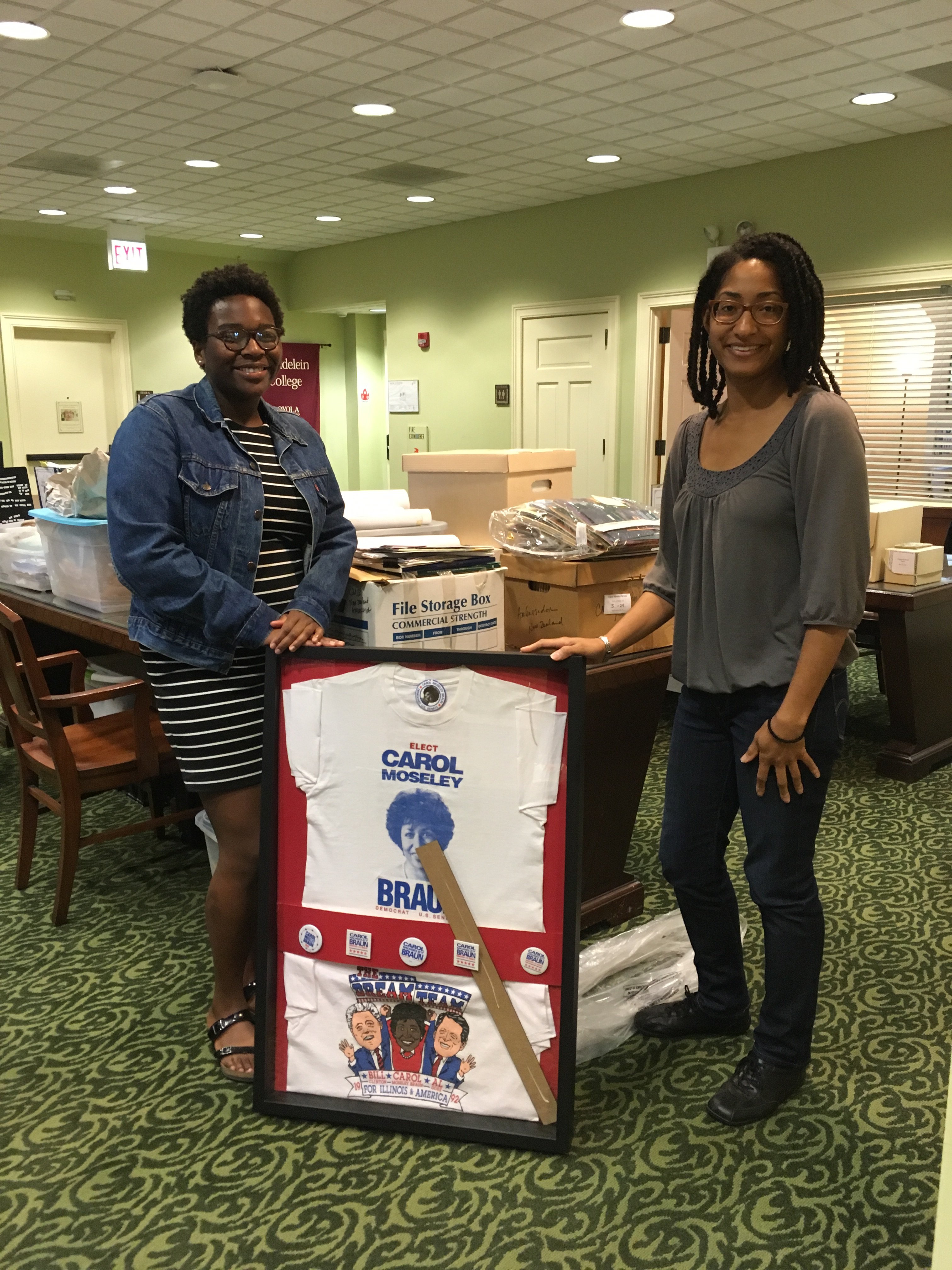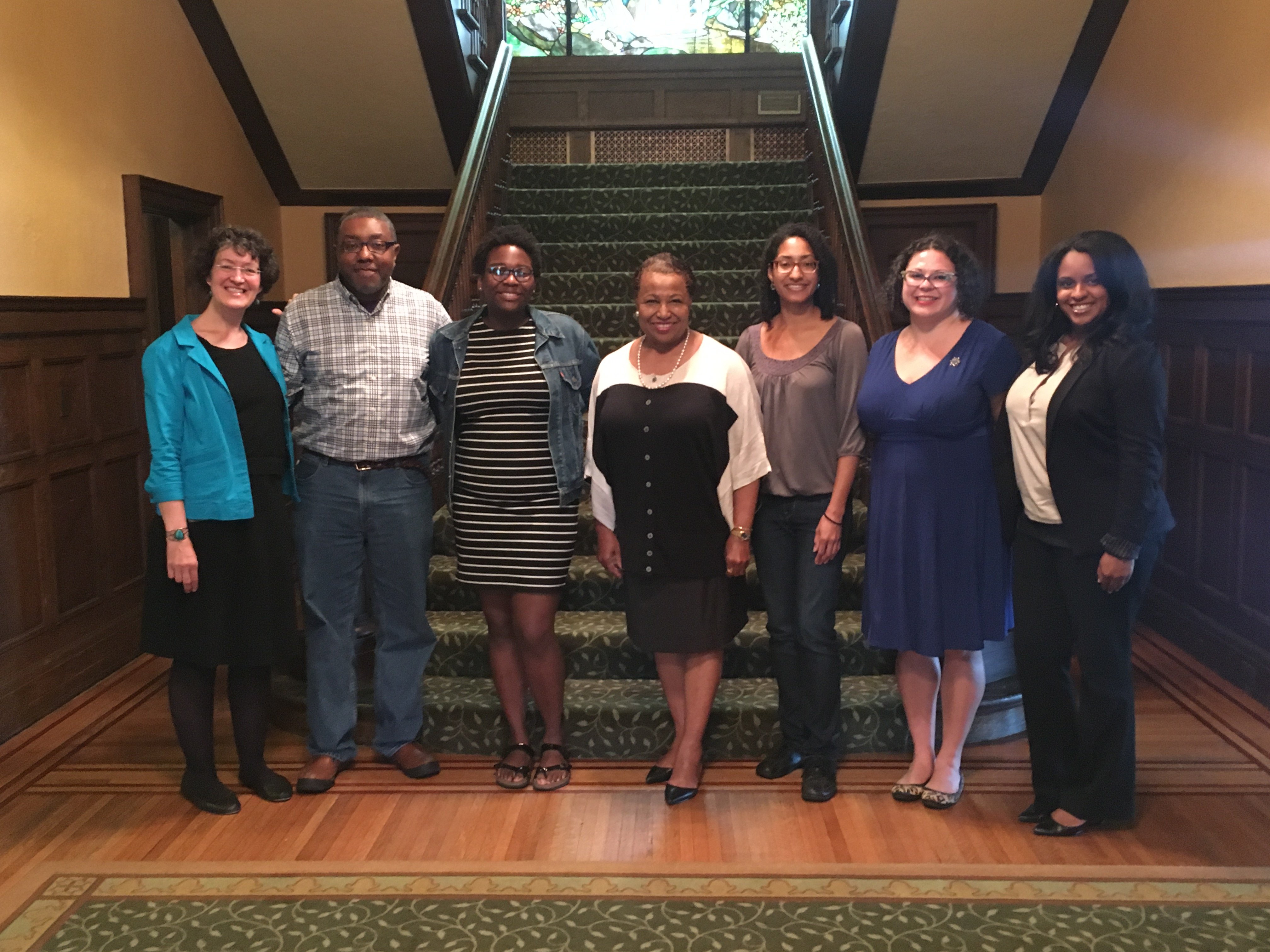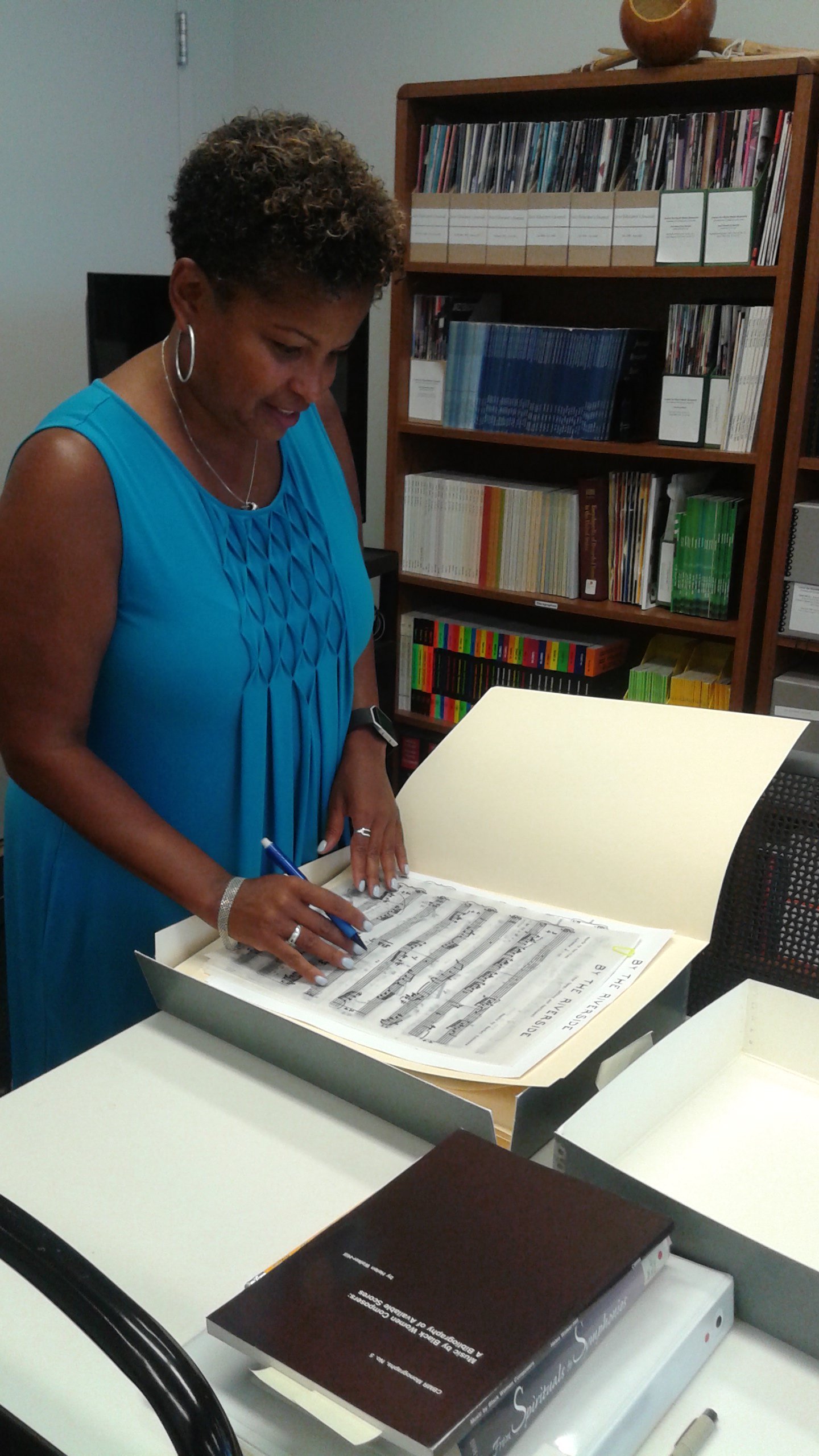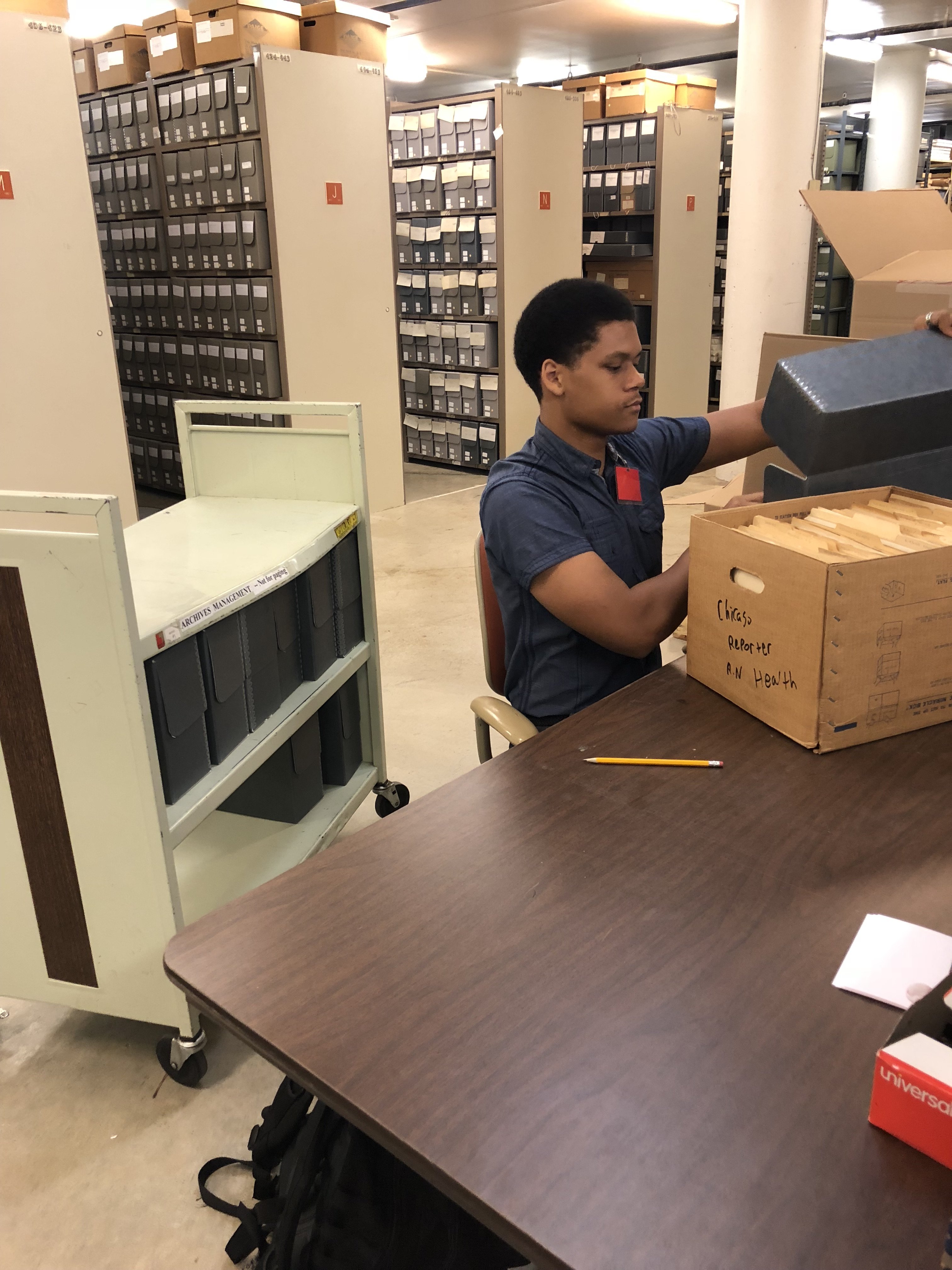Archie Motley Archival Internship
In an effort to diversify and provide students with exposure to the archives profession, the BMRC founded the Archie Motley Archival Internship Program. Archibald Motley III (1935- 2002) was a long-time archivist at the Chicago History Museum and leader in the profession. Motley served as first president of the Midwest Archives Conference and was an active member of the Society of American Archivists. Before his death, he was named Chicago History Museum’s Archivist Emeritus, in honor of his tireless collection development efforts to preserve Chicago’s urban, social and cultural history –especially collections related to labor, African Americans and community organizations. Those collections include: the papers of Claude Barnett, founder of the Associated Negro Press; Earl Dickerson, an attorney for Supreme Life Insurance Co.; and papers of the Brotherhood of Sleeping Car Porters.
The Archie Motley Archival Internship Program is designed to recruit students and early career professionals of color as a means to address the issue of under-representation of critically needed ethnic archivists within the archives profession. Interns gain an understanding of archival preservation practices, as well as learn about Chicago-area history and culture as it pertains to African American and African Diasporic people. Since the program’s initial cohort in 2016, the BMRC has awarded eleven internships.
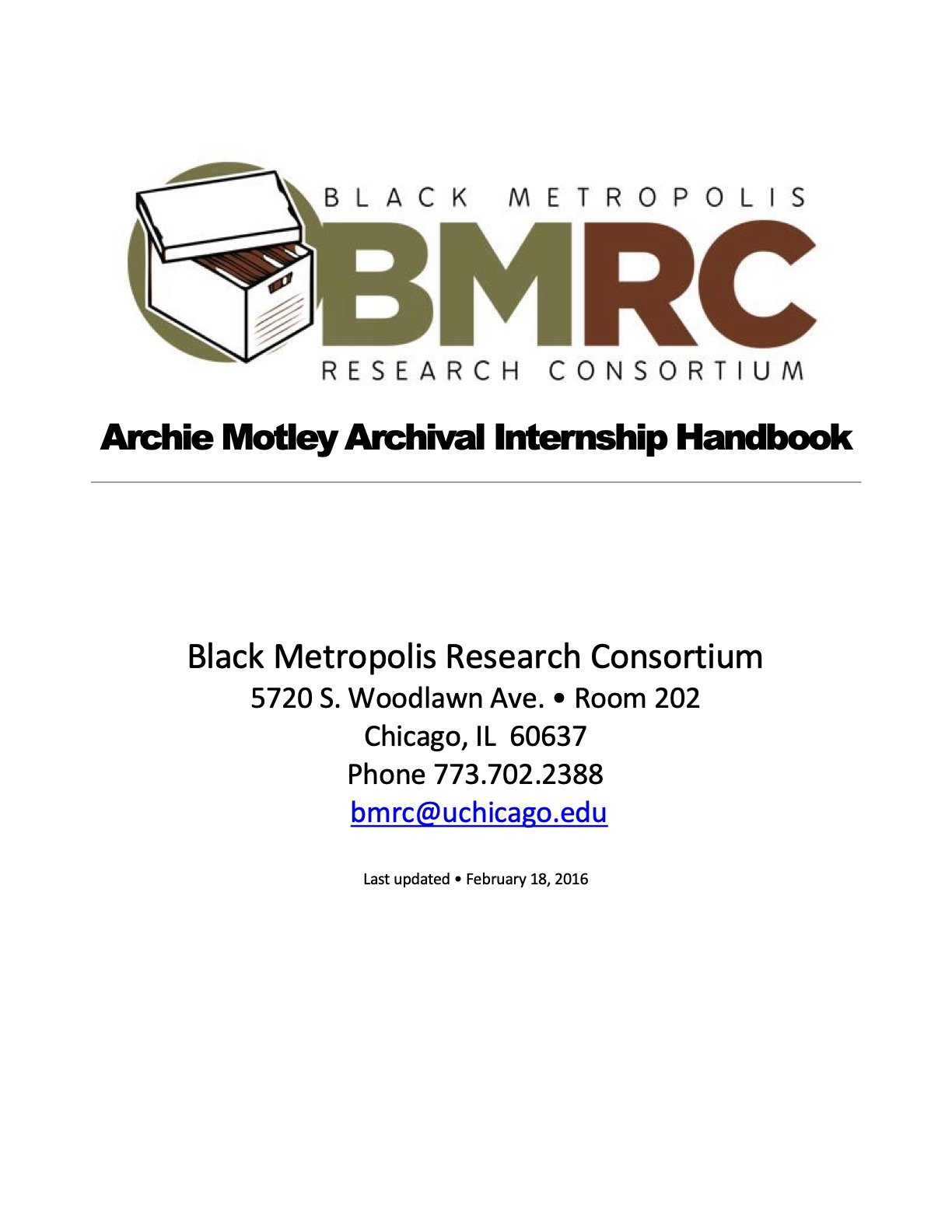
Courtesy of the Black Metropolis Research Center
Former BMRC Executive Director, Camille Brewer and Program Manager/Archivist, Anita Mechler led the BMRC’s launch of the internship program in 2016. To help prepare interns, who may have little exposure to archival collections, the BMRC developed a handbook similar to the CCPP processing manual that provided foundational knowledge on archival processing.

Courtesy of the Black Metropolis Research Center
The primary work of Archie Motley Interns is to aid member institutions in making archival collections accessible to researchers. Interns have taken inventory of what materials in new or unprocessed collections; arranged (organized using archival standards) collections; digitized parts of collections and described collections using finding aids.

Courtesy of the Black Metropolis Research Center
Interns are provided a copy of the handbook and receive preliminary training and professional development from the BMRC. However, the bulk of their practical experience takes place at the internship site under the invaluable guidance of archivists and collections staff. Each year the BMRC puts out a call to member institutions seeking to host Archie Motley interns. Most internships take place during the summer.
Courtesy of the Black Metropolis Research Center
Warren, an early career archivist and McGhee, a DePaul University undergraduate, worked on the Provident Hospital Records held at Chicago State University. The collection contains photographs, correspondence, birth registers, student records, financial and administrative records, and newspaper clippings from Provident Hospital, which was founded in 1891 on Chicago’s South Side. Provident Hospital was created to provide services to African Americans who were denied treatment at other Chicago area hospitals, and also provided post-graduate training for African American doctors and nurses. Chicago State University Special Collections also stewards a digital collection owned by the Provident Foundation, which preserves the legacy of Provident Hospital.
Courtesy of the Black Metropolis Research Center
Naylor, a University of Chicago undergraduate, and Chambliss, a 2015 BMRC Fellow and volunteer a theWomen and Leadership Archives worked together to process part of the Carol Moseley Braun Collection. Carol Moseley Braun became the first female senator from Illinois and the first African American woman in the Senate where she served from 1993 to 1998.
Courtesy of the Black Metropolis Research Center
Pictured left to right: Nancy Freeman, former Director of the Women and Leadership Archives and BMRC Board member, Steven Adams, BMRC Board Chair, Megan Naylor, Senator Carol Moseley Braun, Melanie Chambliss, Anita Mechler, former BMRC Project Manager/Archivist and Andrea Jackson Gavin, former BMRC Executive Director.
Courtesy of the Black Metropolis Research Center
A graduate of Dominican University’s Master of Library and Information Science program, Edgar processed original scores composed by African American female composer Rachel Eubanks (1922-2009), who was also a music educator and founder of the Eubanks Conservatory of Music in Los Angeles. In addition to processing the Eubanks scores, Edgar researched and provided recommendations for digital collection and preservation tools for the center.
Courtesy of the Black Metropolis Research Center
Johnson, a University of Chicago undergrad, prepared the Chicago Reporter (Periodical) Records (1972-1989) for research at the Chicago History Museum. The collection documents a monthly publication and organization founded in 1972 with a focus on race and poverty issues in Chicago and impact to African American and Latinx communities.
